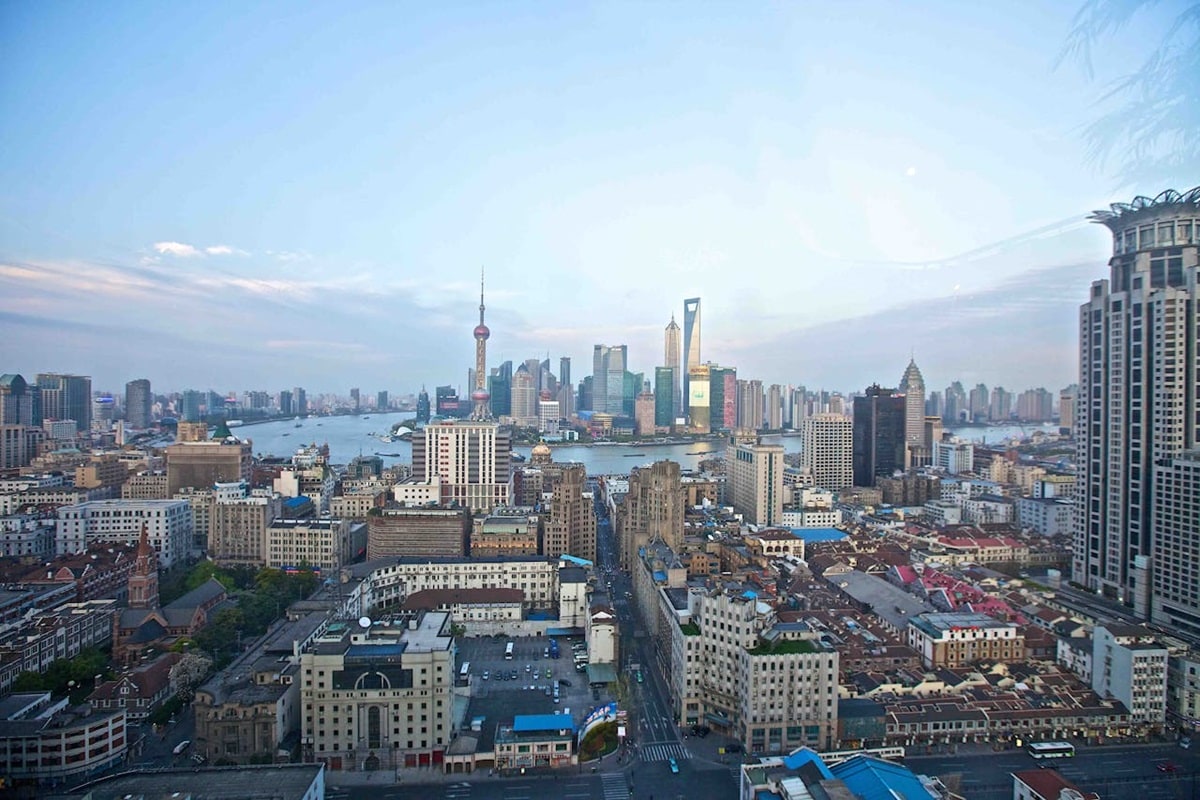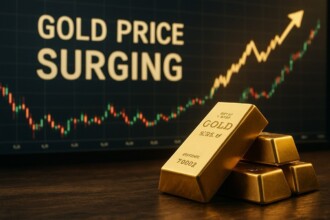In October, China recorded an increase in consumer prices, which demonstrated the pace of upward dynamic, which is the slowest in the last four months.

The mentioned information was made public past weekend. Also, last month, China recorded an increase in producer price deflation. It is worth noting that these indicators are observed against the background of Beijing’s expansion of stimulus measures to support the economy, which is currently going through a difficult period, in a negative sense contrasting with the period of intense growth that was a reality before the coronavirus pandemic.
As part of the latest stimulus decisions, China’s central government past week approved a package of measures worth 10 trillion yuan ($1.4 trillion), which is designed to ease the burden of the so-called hidden debt of the municipal authorities of the Asian country. It is worth noting that this move by Beijing did not coincide with the preliminary expectations of some investors. The mentioned expectations provided that the central authorities of China would directly inject money into the economic system of the Asian country.
According to media reports, citing interviewed analysts, the specified package of measures is highly likely not to be a factor of widespread impact on economic activity, demand, and prices in the near term.
In October, the consumer price index (CPI) in China showed an increase of 0.3% compared to the figure recorded for the same period in 2023. The relevant data were published by the National Bureau of Statistics of the Asian country. In September, China’s CPI grew by 0.4%. It is worth noting that analysts interviewed by the media predicted that this indicator would maintain the pace of the September dynamic in October.
The core inflation in China in October showed an increase of 0.2%. It is worth clarifying separately that this indicator does not take into account volatile prices for food and fuel. In September, core inflation in the Asian country increased by 0.1%.
Bruce Pang, chief economist at JLL, said that due to the Golden Week holiday in October, the impact of stimulus policies implemented since the end of September on promoting domestic demand is not yet obvious. The expert expects CPI to maintain the tendency towards growth. At the same time, core inflation, according to him, will remain mild. The expert noted that the specified position of the specified indicator would allow the Chinese financial authorities to continue cutting interest rates early next year.
It is worth mentioning that at the end of September, the central bank of the Asian country unveiled the most aggressive monetary support measures since the coronavirus pandemic. These measures are aimed at reviving economic growth.
Currently, the Chinese economy, which is the second largest in the world, demonstrates what can be characterized as a consistent weakening of the upward momentum. In the first quarter of the current year, the gross domestic product (GDP) of the Asian country showed growth of 5.3%. In the second quarter, the corresponding indicator rose by 4.7%. In the third quarter, the Asian country’s GDP increased by 4.6%. In this case, there is an unambiguous downturn in growth. Against the background of the corresponding tendency, stimulus measures from the central authorities of China are an expected solution. It is worth noting that more than a year ago, some experts said that Beijing should support the economy on a large scale, otherwise, the dynamic of growth will weaken.
China’s economic system is currently under pressure from factors and circumstances such as the crisis in the local real estate market, which has been going on for several years and is showing signs of a process with potential structural consequences, low domestic consumer activity, and falling investor confidence. In this case, the growth continues, but clearly weakens, forming a situation containing the need for improvement measures. Also, the economic system of the Asian country continues to face what can be described as a kind of echo of the coronavirus pandemic. It is worth noting that the mentioned infection has become a shock factor for the entire global economy, not being a regional specificity with a limited scale of existence.
The stimulus plan, passed by the standing committee of the National People’s Congress, maybe a disappointment for investors who speculated on the so-called financial bazooka. In this case, there are no strong policy moves expected by the mentioned investors to boost consumption and reflate the economy.
Chinese Finance Minister Lan Foan said last week that additional stimulus measures would be taken. According to him, the tax policy aimed at supporting the housing market would come soon. He also said that the Chinese authorities are accelerating the work on the recapitalization of banks.
The media, citing analysts, report the likelihood that Beijing is currently seeking to retain some economic ammunition until Donald Trump returns to the White House next January. It is worth noting that against the background of Mr. Trump’s victory in the presidential election of the United States, the prospects for an increase in tariffs on goods imported from China have significantly increased. If an appropriate decision is made in Washington, Beijing will face significant problems. Currently, China’s economic system, which is going through a difficult period, relies on exports as actually the main growth factor. Tariff increases will significantly weaken this momentum, which will mean massive financial losses for Beijing.
China’s CPI fell 0.3% in October on a month-on-month basis. It is worth noting that experts interviewed by the media predicted a decrease in this indicator by 0.1% compared to the September reading.
Dong Lijuan of the statistics bureau said in a statement that the decline in food prices was the source of impact on the dynamic of CPI on a monthly basis.
It is worth noting that in China, wealth 70% of households are associated with the real estate sector, which is experiencing a crisis. At its peak, this sector accounted for 25% of the structure of the world’s second-largest economy. Currently, Chinese consumers are in no hurry to spend their money. It is worth noting that nowadays a kind of restrained consumer activity is observed, including at the global level, since uncertainty is still relevant from the point of view of the prospects for the international economy. For China, this factor is also sensitive, although not determining in the context of the impact on the formation of the current situation. Against the background of weak consumer activity, Beijing is facing deflationary pressure.
Headline consumer inflation in China is likely to remain low next year, at 0.8%. The corresponding forecast is contained in a note published by Goldman Sachs this month. The experts of the mentioned financial institution also expect that producer prices in China will not turn positive until the third quarter of next year. In October, the corresponding indicator in the Asian country fell by 2.9% year-on-year. It is worth noting that in September, this figure decreased by 2.8%. Experts interviewed by the media expected producer prices in China to fall by 2.5% in October. The final result turned out to be the biggest drop in the last 11 months.
In the Asian country, factory-gate deflation has recently intensified in areas such as petroleum and natural gas extraction, oil and coal processing, chemical products manufacturing, and auto-making.
Zhou Maohua, a macroeconomical researcher at China Everbright Bank, predicts that the implementation of some better-than-expected counter-cyclical adjustment policies will improve consumption and investment momentum. At the same time, the expert noted that the recovery in the domestic housing market, household consumption, and the balance of supply and demand will take some time.
It is worth noting that global commodity markets plunged into a kind of condition of calm after China, as part of its attempts to revive the economy, focused on restructuring the debt of local governments, but did not take measures that would directly stimulate domestic demand.
According to some media, Beijing’s restraint in the context of boosting the economy may be related to preparations for Donald Trump’s return to the White House. China probably wants to retain the capacity to act in case of a negative scenario. As it was above-mentioned, Mr. Trump can make decisions that will generate a new configuration of reality in the space of trade and the economy as a whole. For Beijing, this version of reality can become a kind of set of problems. At the same time, the prospects of the future are still unknown for certain, and any statements on the relevant topic are assumptions, the probability of which in the practical plane is not guaranteed as an inevitable scenario.
Against the background of Donald Trump’s imminent return to the White House, UBS experts have revised their forecast for China’s economic growth next year. Experts of this financial institution expect that the GDP of the Asian country will rise by about 4% in 2025. It is worth noting that the previous version of the forecast, published in October, provided for an increase in the mentioned indicator by 4.5%. Experts explained the change in their expectations to the likelihood of an increase in tariffs on goods from China. It is worth noting that other financial institutions in the context of assessing the economic prospects of the Asian country show more optimistic opinions.
UBS also expects that in 2026, the growth rate of the Chinese economy will slow down and will be significantly lower than in 2025.
The specified bank’s head of Asia economics, Tao Wang, said that the new baseline scenario of financial institution experts provides that the Donald Trump administration will gradually impose additional tariffs on most of the goods imported from the Asian country from the second half of next year. At the same time, in this context, it was separately noted that high uncertainty remains regarding the scale and timing of the mentioned and other solutions.
Tao Wang said that UBS’s forecast for China’s GDP growth in 2025 takes into account the continued weakness of the Asian country’s real estate market. This financial institution also expects the yuan to weaken against the stronger US dollar. The bank’s experts predict that by the end of the current year, the exchange rate of the Chinese national currency on the onshore market will be fixed at 7.3 yuan per dollar. At the end of 2025, the corresponding figure, in their opinion, will be 7.6 yuan.
Goldman Sachs and HSBC on Monday, November 11, announced that their forecasts for China’s economic growth in the range of 4% to 5% next year continue to be relevant and have not yet been changed in any way. Experts from the mentioned financial institutions separately noted that the Asian country’s economic system continues to face pressure amid the ongoing downturn in the real estate market and weak consumption.
Moody’s Analytics’ economist Harry Murphy Cruise said that this company was developing a clearer idea about which US policies would be rolled out, and when, before considering any update to its 2025 projection.
Zhang Ming, deputy director of the Chinese Academy of Social Sciences’ Institute of Finance and Banking, noted last week that Beijing is highly likely to set a target for economic growth next year at about 5%, just as in 2024. In the first nine months of the current year, the Asian country’s GDP increased by 4.8%. At the same time, the growth of the world’s second-largest economy in 2023 was 5.2%.
During the election campaign, Donald Trump repeatedly stated his intention to impose tariffs from 60% to 100% on imports from China. In this context, it is worth mentioning that the total worth of goods shipped from an Asian country to the United States last year amounted to $500 billion. During his 2017-2021 presidential term, Donald Trump added tariffs on Chinese goods in the range of 10% to 25%.
It is also worth mentioning the currently observed increase in geopolitical tensions. For China, the specified state of affairs is a pressure factor. Against this background, it is obvious that Beijing needs to develop the internal side of the economy, reducing dependence on activities on the external circuit. ING experts hold such an opinion.
It is expected that the strengthening of stimulus measures will become the main tool for Beijing to support the economy. Local governments and state-owned enterprises, buying unsold homes, may try to bolster the real estate market by buying unsold homes. This is said by ING.
Tao Wang predicts that Beijing will strengthen its policy aimed at stimulating domestic demand and offset external shocks in 2026.
Joerg Wuttke, a China business adviser and former chairman of the European Union Chamber of Commerce in China, said the Asian country has yet to write cheques. In this case, spending vouchers are meant. The expert also noted that none of the stimulus measures approved by Beijing will contribute to increased consumer spending.









